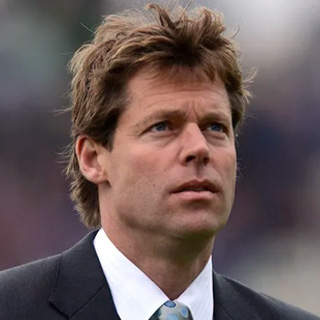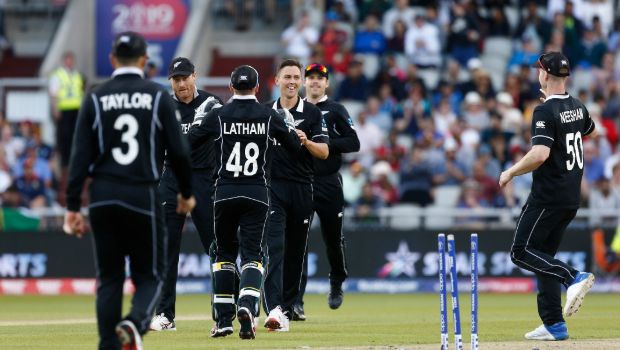Pakistan vs New Zealand it is in the final of a short but highly-contested tri-series. There’s a lot at stake in this game, isn’t there? Not only is it the final of a tri-series, but it also serves as a crucial lead-up to the Champions Trophy opener in a few days. That adds an extra layer of intensity—psychological edges, individual battles, recent form, and momentum all come into play. While winning this final is important, the bigger picture makes it even more compelling.
Pakistan’s bowling has to be a real concern. Yes, they’ve been playing on incredibly flat pitches—Karachi, arguably one of the flattest in Pakistan, offers little assistance to bowlers. Naturally, that puts extra pressure on the attack, especially the pacers, and once again, it has proven to be a challenge.
Glenn Phillips took them apart, scoring 98 off six overs in one game, and then 87 off seven in the next against South Africa. Even with Hasnain coming in, Pakistan has struggled to close out innings effectively which is a recurring issue. Ironically, heading into this series, finishing with the ball would have been considered one of their key strengths. That remains a major concern for Pakistan.
Their bowling attack still seems unbalanced, and when compared to New Zealand, their spin options appear less effective. Khushdil is a decent bowler, no doubt, but New Zealand has greater depth in their spin department, which could make the difference—we’ll have to wait and see.
That said, there are some positives for Pakistan. While their fast bowling has been inconsistent, Shaheen Shah Afridi has shown glimpses of brilliance, picking up wickets despite being expensive. However, he’s still far from his best, and if Pakistan hopes to win this trophy, they’ll need him firing on all cylinders.
The positive takeaway is that Shaheen seems to be regaining confidence and form, which is a big plus for Pakistan. On the batting front, what a partnership between Salman Agha and Mohammad Rizwan in that virtual semifinal vs South Africa.
Their 260-run stand, guiding the team to victory, was outstanding. If ever a team needed a confidence boost, this was it—both for the captain and the squad as a whole. Successfully chasing such a big total is a massive morale lift for the dressing room. Fakhar Zaman is also in fine form, adding more valuable runs to his tally.
Babar Azam remains the biggest concern. While Pakistan can win the Champions Trophy without major contributions from him, it’s becoming increasingly difficult. He’s an exceptional player, but he’s struggling for runs, and it’s hard to see them lifting the trophy without him stepping up. His form will be a crucial factor heading into this game.
If Babar can find form—especially in the opening match of the Champions Trophy—it could change the entire outlook for Pakistan. With the tournament being short, there’s little time to settle in; teams need to hit their stride from the very first game. A strong start from him would give Pakistan a much-needed boost and set a different tone for their campaign. For me, that will be a key factor to watch.
The two key questions for Pakistan are: Can their bowling close out games more effectively? And can Babar Azam find form? If both fall into place, Pakistan suddenly looks like a much stronger contender for the title.
As for New Zealand, Rachin Ravindra’s fitness remains a concern. He’s a high-quality player, and his absence could be a significant setback for them. Devon Conway’s inclusion is a big boost—I’m a huge fan of his. It’s hard to imagine him not being in the XI, regardless of Rachin Ravindra’s availability. Depending on this game’s outcome, New Zealand may have to make a tough selection call.
Assuming Conway plays—he narrowly missed out on a century last time—his quality is undeniable. He’s a top-class player, and they’ll likely find a way to fit him in, even with Ravindra in the squad.
Meanwhile, Kane Williamson remains their key player, and his form is a major positive. With big scores in both games, he’s leading from the front, which is exactly what New Zealand needs.
Kane Williamson’s fluency is a huge plus—he scored a century off just 80 balls, which is a great sign for New Zealand. His ability to rotate the strike and build an innings before accelerating at the end is crucial, especially if they don’t get off to a flying start.
That said, one area to watch is how they utilise the powerplay. They’ve shown they have the firepower to finish strong, but making the most of the early overs could give them an even greater edge. Overall, their squad looks well-balanced, with spin being a particular strength.
That could be the key difference between the two sides in this game. On a flat pitch, New Zealand’s ability to take the pace off the ball, mix up variations, and rely on their three quality spinners gives them a strong advantage.
Of course, they have pace as well. Lockie Ferguson’s availability remains uncertain, but assuming he returns for the Champions Trophy, he’ll add even more firepower alongside Matt Henry. With their well-rounded and imposing bowling attack, New Zealand looks to be in excellent shape.
Even if New Zealand loses this game, it’s unlikely to shake them too much. While every match matters, my sense is that this game carries greater significance for Pakistan than for New Zealand, especially with the Champions Trophy opener approaching.
That’s not to say New Zealand won’t be aiming to maintain their winning momentum. But if things don’t go their way in this match, I wouldn’t rule them out as strong contenders for the Champions Trophy.






















